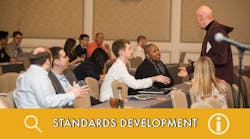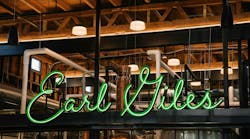The LRC's LED Lighting Institute, to be held held April 27-29, 2005, provides hands-on training about this quickly evolving lighting technology in a small-class setting.
Participants learn about the latest advances in LED research, testing and technology, as well as various strengths and weaknesses of LED products, how to design lighting installations using LEDs, and how to select and specify LED lighting system components.
Participants also observe hands-on demonstrations of a full range of LED technologies used in a variety of applications and experiment with LED lighting technology by building sample lighting fixtures, in addition to learning how to match application requirements with available technologies.
"Our aim with this Institute is to educate participants about the best uses for LEDs, including which applications can benefit from the technology and how to successfully integrate LEDs into a lighting design," said Jean Paul Freyssinier, senior lighting design specialist at the LRC. "OptiLED's donation helps us to demonstrate the performance and characteristics of LEDs and their differences compared to traditional light sources."
"OptiLED has consistently supported the need for LED education in today's marketplace, in order to create cohesiveness between traditional lighting designers and experts and this new breed of LED proponents," said Bruce Pelton, vice president of sales for OptiLED. "Using OptiLED products, the LRC's LED Institute will introduce new and inexperienced users to this unique lighting technology and help create a general understanding and awareness among those in the lighting communities."
Earlier this year, OptiLED also collaborated with the California Lighting Technology Center, a newly-formed lighting innovation center based at the University of California, Davis, on a number of development and demonstration projects. The partnership involved the California Energy Commission, the state's utility companies, the National Electrical Manufacturers Association, and various other lighting companies.




